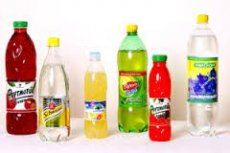New publications
Labeling will appear on sodas to warn about the harms of sugary drinks
Last reviewed: 02.07.2025

All iLive content is medically reviewed or fact checked to ensure as much factual accuracy as possible.
We have strict sourcing guidelines and only link to reputable media sites, academic research institutions and, whenever possible, medically peer reviewed studies. Note that the numbers in parentheses ([1], [2], etc.) are clickable links to these studies.
If you feel that any of our content is inaccurate, out-of-date, or otherwise questionable, please select it and press Ctrl + Enter.

In America, experts have proposed placing warnings on carbonated drinks, similar to those used to warn about the dangers of nicotine.
Assembly member Karim Kamara has proposed a bill that would establish new regulations for labeling certain types of drinks.
The World Health Organization calls for reducing sugar consumption in products, according to recommendations, the average person needs to consume 5 cubes of sugar (25g). One can of cola contains 35g of sugar. Regarding the size of the label, legislators have proposed making it dependent on the size of the bottle or can with the drink.
Other suggested warning labels include placing the following all-caps text on a can or bottle of soda: Product Safety Warning: Drinking sugar-sweetened beverages leads to obesity, diabetes, and tooth decay.
This proposal has already been supported by the Cardiology Union, the Center for Science in the Public Interest, and the Diabetes Union.
Experts have long warned about the dangers of sweet drinks. Excessive consumption of soda leads to the development of obesity and type 2 diabetes. Sweet and carbonated drinks are especially dangerous for small children. In addition, sweet drinks can cause other health problems, for example, obesity puts people at increased risk of stroke, heart disease, and cancer.
Despite its support for the bill, the American Beverage Manufacturers Union says that even if warning labels were placed on drinks, people's preferences would not change. They believe that a more effective approach would be to focus on programs that teach people about healthy eating habits.
As experts suggest, in the next twenty years we can expect an increase in the number of oncological patients with bowel cancer, aged 20 to 49 years. Experts believe that the reason for this phenomenon is unhealthy nutrition.
Studies have shown that carbonated drinks, chocolate, cakes, and cookies increase the risk of developing cancer. In addition, processed meat products (sausages, bacon, etc.) also pose a health hazard. The main symptoms of bowel cancer are indigestion, bloody stool, and cramps.
As statistics show, people aged 20 to 34 are more often diagnosed with this disease. By 2020, experts suggest that the number of cases of bowel cancer may increase to almost 40%, and by 90% by 2030. At the same time, experts predict a decrease in cases of the disease among people over 50: by 23% by 2020, by 41% by 2030.
Overall, cancer cases among men have decreased by 3% in recent years, and among women by almost 2.5%. But the highest results are observed among older people over 75. Cancer diagnoses have decreased by almost 1% in those aged 50 to 74.
 [ 1 ]
[ 1 ]
